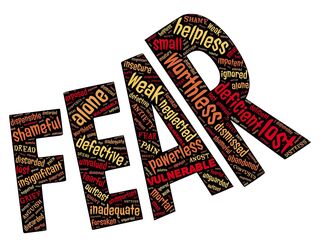Source: Growing Up with Parental Narcissism | Psychology Today
How to deal with with emotional flashbacks as an adult

Our last blog post discussed “Why Do I Feel Like I’m Never Enough?” People who grew up with narcissistic parenting, often lack emotional confidence and security. Parental narcissism can create profound insecurities by them preempting your needs with theirs. You learn to swallow your feelings which fester deep down inside.
Severe Narcissism in even one parent can result in Complex Post Traumatic Stress Disorder or CPTSD. CPTSD has five symptoms. This post discusses its most noticeable symptom, emotional flashbacks.
What are emotional flashbacks?
Many people don’t realize what’s happening during an emotional flashback due to the lack of a visual component.
Often, an event happens resulting in a very overwhelming but vague residual emotion. There is no visual component to define it as a past event from childhood. You are left in a state of illusive disquiet.
Suddenly, you feel hyper-aroused by a non-visual memory. Your fight-or-flight system kicks in. You are feeling overwhelmed with intense emotions that are far deeper than the current situation warrants.
Emotional flashbacks vary in intensity and the emotions they provoke.

Fear. If fear is provoked, you may become overwhelmed, anxious, and panicky without understanding why. You know that the panic is excessive. You feel helpless and succumb.
Despair. If despair is triggered, you might suddenly dissociate and not understand why you feel so numb and detached.
Pain. In pain, you may protectively overreact with extreme anger and self-recrimination.
CPTSD doesn’t go away until you do the work necessary to resolve past issues.
The first step in recovery from narcissistic abuse or neglect is acceptance. Next is grieving what you missed as the child of narcissistic parents.
Gaining self awareness increases self confidence. Acceptance of yourself with strengths and vulnerabilities helps make emotional flashbacks occur less frequently.
Overwhelming feelings of rejection (especially self-rejection) may be an emotional flashback to previous childhood experiences of rejection and abandonment, which created profound sadness and anxiety. These overwhelmed you as a child. The child inside you, still needs your love and support.

Acknowledging flashbacks helps you validate your emotions and reminds you that your past is gone and can’t hurt you now.
Dealing with Emotional Flashbacks
Caroline Foster in “Mothers: How to Handle a Narcissistic Parent and Recover from CPTSD” said.
1. Save yourself
- Emotional flashbacks take you to a timeless part of the psyche that feels helpless, hopeless, and surrounded by danger as you were in childhood.
- The feelings and sensations you’re experiencing are memories that cannot hurt you. They remind you that you still feel afraid, but you are not in danger and are safe in the present.
2. Have boundaries
- If someone is currently provoking these feelings, remind yourself that you don’t have to accept mistreatment.
- I would add, “You’re always free to leave uncomfortable, emotionally “disenfranchising” situations.
3. Speak Reassuringly to Your Inner Child
- Children need to know that you love them unconditionally and that you will comfort and protect them.
- Parent yourself.
4. Remind Yourself that You’re an Adult with More Resources to Protect Yourself
5. Ease Back Into Your Body
- Fears and insecurities can cause us to numb and dissociate.
- Try de-stress breathing, exercise, eating nutritiously, adequate sleep, and fun.
- Find your passions and purpose.
- I encourage practicing moderating your Fight, Flight, Fawn, and Freeze responses.
6. Resist the Inner Critics
- Say No to your mental critics.
- Replace negative thinking with a prepared list of your qualities and accomplishments.
7. Allow Yourself to Grieve
- Flashbacks are opportunities to release those unexpressed feelings of fear, hurt, and abandonment.
- Seek professional help to face your fears or join a CPTSD-informed support group.
8. Cultivate Safe Relationships and Supports
- Take alone time as needed without isolating yourself.
- Remember feelings aren’t facts and don’t define who you are. They’re just feelings—representations of how you are processing something.
- Shame doesn’t mean you’re shameful.
- Fear doesn’t mean you’re not brave. Brave is being afraid and doing it anyway with tools and supports.
- Educate your closest friends about flashbacks. Ask and accept their support as you talk and feel your way through them.
9. Identify Types of Things that Trigger You and Lead to Flashbacks
10. Determine What You are Flashing Back To
- View flashbacks as opportunities to discover and validate the experiences you need to heal from the past that led to feeling “not good enough”. Flashbacks also point to your current unmet needs and can provide you with motivation to finally get them met. Accept no substitutes for what will meet your needs.
- Start researching the developmental milestones of children at the ages you identify these unhappy events occurring at, and consider working to enhance your acquisition of these.
11. Be Patient
- Recovery takes the time it takes.